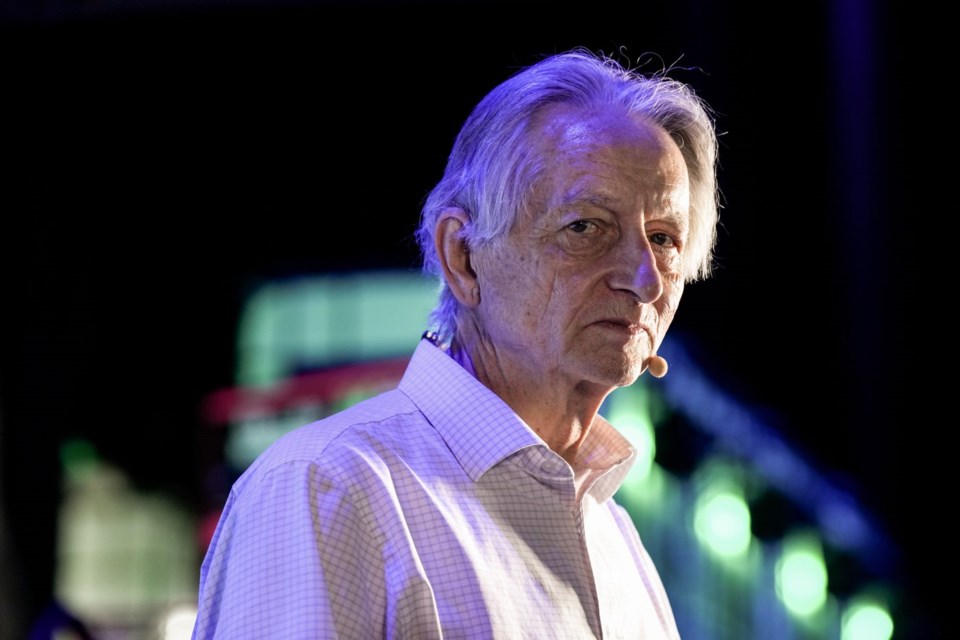TORONTO — If mistakes artificial intelligence make have you doubting it can't ever rival humans, one of the technology's pioneers says think again.
Geoffrey Hinton said Wednesday that AI keeps getting better at reasoning and has surpassed the skill level many experts expected it to be at by 2025.
Yet every time the technology messes up, he said people have an itch to conclude that AI didn't understand what was being asked of it.
“There's recent research showing that you give it something easy, it probably gets it right. You give it a slightly more difficult problem, it takes longer and it still gets it right,” said the recent Nobel Prize winner.
“But if you give it a more difficult problem… and it gets it completely wrong, people use that to say, ‘well it couldn't really reason at all.”
The way he sees it is that AI can solve simple, immediate problems, but stumbles on anything more complicated like humans do.
While improving the technology so it is not tripped up by anything complicated will be a challenge, he said it's more of a stumbling block than a hurdle that can't be overcome.
And when it is overcome, he said humans have plenty to be worried about.
“We're all going to have very smart AI assistants and…. we're not going to need ordinary assistance,” he said.
"But there's also the question of whether these things, when they get smarter than us, are going to need us."
When AI becomes smarter than us, he said it would manifest as the technology coming up with schemes and doing things "you would have never thought of them."
"If you had an argument with them about anything, they would win the argument," he said.
While winning arguments may seem trivial, Hinton has several concerns about the technology's potential that go well beyond arguments.
On top of an existential risk to humanity, he worries the technology could cause unemployment, bias and discrimination, echo chambers, fake news and autonomous lethal and biological weapons.
Countering these issues will take immense public pressure to create regulations with teeth that will rein in tech companies, which he said will fight any guardrails.
He likens the situation to climate change.
"Obviously, the big oil companies didn't believe in regulations, and the public needed to be convinced there was climate change, so they would apply pressure on the politicians from the other side saying do something about it," he said. "I think this is the same situation."
His remarks were made in a Toronto Tech Week panel with Nick Frosst, one of Hinton's proteges and a co-founder of buzzy AI firm Cohere.
Their discussion was at the University of Toronto, where Hinton is a professor emeritus and Frosst was his student.
They’ve remained close despite having diverging views on AI. For example, Hinton thinks AI poses an existential threat and Frosst isn’t convinced it does.
While they both agree the technology will upend the job market, they disagree about how.
Frosst said the large language models (LLMs) that underpin AI systems will automate 20 to 30 per cent of everyone’s jobs done while sitting in front of a computer.
“The danger is when they do 80 per cent,” Hinton said.
“I think that's where we disagree,” Frosst replied. “I think there's a limit and I think there's lots of work that we do now as people in our jobs and at our homes and in our personal lives that an LLM will not be able to do.”
This report by The Canadian Press was first published June 25, 2025.
Tara Deschamps, The Canadian Press



